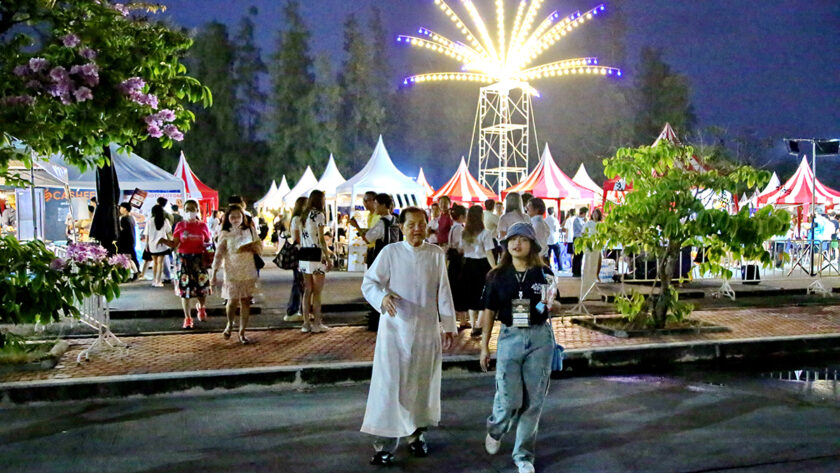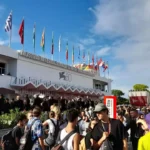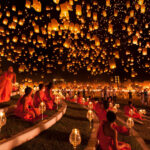Festivals have been an integral part of human culture for centuries. From grand celebrations of cultural heritage to small, intimate gatherings, festivals have the ability to evoke a wide range of emotions, creating memories that last a lifetime. While every festival is unique, there are certain elements that elevate an event from being simply enjoyable to unforgettable. These elements, when combined, create an experience that resonates deeply with people, drawing them into the moment and fostering lasting connections.
In this article, we will explore what makes a festival unforgettable, examining the key components that transform a simple event into a memorable celebration. From the atmosphere and the sense of community to the rituals, food, music, and even the unexpected surprises, we’ll uncover how each aspect contributes to the magic of a festival.
1. The Sense of Community
One of the most powerful aspects of any festival is the sense of community it fosters. Whether it’s a large-scale cultural festival or a local neighborhood gathering, festivals bring people together, uniting them in celebration. The shared experience of participating in a festival, whether as a spectator or as an active participant, creates a sense of belonging and connection.
The Power of Shared Celebration
When people come together to celebrate, they create a bond that transcends individual differences. In many cultures, festivals are rooted in tradition and spirituality, and people gather to mark significant milestones, such as harvests, religious observances, or historical events. The collective celebration amplifies the joy, making it a shared memory that everyone can connect to, even if their individual experiences may differ.
For example, think of the communal feeling that arises during a festival like Diwali, where families and friends gather to light lamps, exchange gifts, and share meals. The shared joy of the occasion brings people closer, strengthening the bonds between them and creating a collective memory of the festival.
Inclusivity and Participation
What makes a festival unforgettable is its inclusivity—whether it’s a community festival or a global celebration, everyone is welcome to join in. Festivals that encourage participation rather than just observation create a more immersive experience. Whether it’s dancing in the streets, taking part in a local parade, or helping to set up decorations, involvement fosters a deep sense of connection to the festival and the people around you.
Example:
The Brazilian Carnival is an excellent example of a festival where participation is key. While the iconic parades are the highlight, people from all walks of life participate in street parties, samba schools, and community events, which adds to the richness and sense of shared experience.
2. The Atmosphere and Environment
An unforgettable festival is often defined by its atmosphere. The way a festival looks, sounds, and feels creates a sensory experience that immerses attendees in the celebration. From the vibrant colors of decorations to the lively beats of the music, the environment plays a crucial role in shaping the festival experience.
Vibrant Colors and Decorations
The visual elements of a festival are often what first catch the eye. The use of vibrant colors in decorations, clothing, and lighting creates an immediate sense of excitement and energy. Whether it’s the vibrant reds, greens, and golds of Chinese New Year or the colorful costumes at Mardi Gras, the visual stimulation sets the tone for the festival and makes it memorable.
Decorations also add to the ambiance, with elaborate setups transforming spaces into magical, festive environments. Think of the twinkling lights during Christmas markets or the grand floats at a parade—they all add to the immersive nature of the experience.
Example:
The “Festival of Lights” in Lyon, France, is a perfect example of how lighting and decoration can elevate an event. The entire city is transformed into a magical wonderland with incredible light displays, installations, and projections, making the festival an unforgettable visual experience.
Music and Sounds
Another key element of unforgettable festivals is the music and sounds that fill the air. Music brings energy, sets the mood, and connects people. Whether it’s live bands playing folk music, DJs spinning electronic beats, or the rhythmic drums of a cultural performance, the soundscape of a festival plays a pivotal role in making the event unforgettable.
Festivals like Woodstock, Tomorrowland, and the Glastonbury Festival are celebrated not just for the music itself, but for how the music unites people from all over the world. The shared experience of listening to music together creates a powerful sense of unity.
Example:
At the Edinburgh Festival, the mix of live performances, street musicians, and impromptu concerts fills the city with an atmosphere of artistic expression, creating an unforgettable auditory experience.
3. Tradition and Rituals
A festival’s roots in tradition and ritual are key to making it memorable. Traditions give a festival structure and meaning, helping attendees to feel connected to the cultural or religious significance of the event. These rituals are often passed down through generations, creating a sense of continuity and respect for heritage.
Symbolism and Rituals
The rituals and customs associated with festivals give them depth. Whether it’s lighting a lantern at the Lantern Festival, performing a traditional dance, or wearing special clothing, these rituals create a sense of participation and connection to the past. It’s not just about having fun; it’s about honoring traditions and celebrating cultural values.
For example, the custom of lighting fireworks during Diwali isn’t just a way to add excitement to the festival; it’s a tradition that symbolizes the victory of light over darkness and good over evil.
Spiritual Significance
Many festivals have spiritual or religious significance, and these elements can make a festival particularly moving and unforgettable. Whether it’s attending a midnight mass on Christmas Eve, participating in a spiritual procession during Easter, or taking part in the silent reflection of a Buddhist festival, the deeper meanings behind the festivities resonate with attendees on a personal level.
Example:
The religious rituals of the Hajj pilgrimage in Islam are deeply spiritual and transformative. Although the Hajj is not a “celebration” in the traditional sense, the rituals, including prayers, walks, and symbolic acts, make it an unforgettable and life-changing experience for millions.
4. Delicious Food and Drink
Food is at the heart of many unforgettable festivals. From street food to elaborate feasts, the tastes and smells of festival cuisine add a sensory layer to the overall experience. Festival food isn’t just about sustenance—it’s about tradition, culture, and sharing something special with others.
Cultural Delights and Culinary Traditions
Every culture has its own signature dishes that come to life during festivals. The smell of freshly made samosas during Eid, the taste of hot chocolate and mulled wine at Christmas markets, or the sight of handmade dumplings during Chinese New Year—food is an essential part of the festival experience. These foods often hold cultural significance and are passed down through generations, connecting people to their heritage.
Example:
At the Oktoberfest in Munich, the food is just as important as the beer. Traditional Bavarian dishes like pretzels, sausages, and roasted chicken are central to the festival experience, and these culinary delights make the event unforgettable for food lovers.
The Joy of Sharing a Meal
Food at a festival is often about sharing. Whether it’s communal meals, food stalls, or picnics with friends and family, eating together fosters a sense of togetherness. The act of sharing food with others enhances the sense of community, making the festival feel more intimate and meaningful.
Example:
The communal feasts during the Harvest Festival in many cultures bring families and communities together to share the bounty of the season. These shared meals create lasting memories of connection and joy.
5. The Element of Surprise and the Unexpected
What truly sets an unforgettable festival apart from others is the element of surprise. Unexpected moments—whether it’s a spontaneous performance, a hidden treasure, or an unplanned interaction—create a sense of excitement that cannot be replicated in any other setting.
Unexpected Performances and Events
Surprise performances, pop-up art exhibits, or impromptu parades add an element of unpredictability to a festival. These spontaneous moments are often the ones that leave the most lasting impressions, as they create excitement and wonder.
Example:
At the Burning Man festival, unexpected performances and art installations appear throughout the desert, offering attendees the chance to stumble upon something truly unique and unforgettable.
Unique Experiences
In addition to planned events, some festivals are full of hidden gems—whether it’s a secret concert in an alley, a flash mob, or a surprise celebrity appearance. These unique experiences are what make a festival stand out in the memory of those who attend.
Example:
At the Edinburgh Festival Fringe, spontaneous street performances by up-and-coming artists or unplanned performances in the city’s pubs offer surprises that are often the most memorable part of the experience.
7 Frequently Asked Questions about Unforgettable Festivals
1. What makes a festival unforgettable?
A festival becomes unforgettable when it fosters a sense of community, offers immersive experiences, embraces tradition, surprises attendees, and provides delicious food and drink that connects people to the culture.
2. How can I make the most of my festival experience?
To make the most of a festival, be open to participating, try new foods, immerse yourself in the traditions and rituals, and embrace the surprises that arise throughout the event.
3. Are there any festivals known for their unforgettable food experiences?
Yes, festivals like the Barcelona Tapas Festival, the Food and Wine Festival in New York, and the annual Taste of Chicago event are all known for offering unforgettable culinary experiences.
4. Why is the atmosphere important at festivals?
The atmosphere sets the tone for the entire event. Visual elements like decorations, lighting, and vibrant colors, along with the sounds of music and laughter, create a sensory experience that immerses attendees and makes the festival memorable.
5. How do cultural rituals enhance a festival?
Cultural rituals give depth and meaning to the festival. They connect attendees to traditions and shared values, and the experience of participating in or witnessing these rituals makes the festival more meaningful.
6. What role does music play in making a festival unforgettable?
Music brings energy and life to a festival. It can evoke emotions, unite people, and add excitement to the overall experience, making it more memorable.
7. How can I create my own unforgettable festival?
To create your own unforgettable festival, focus on building a sense of community, offering engaging experiences, embracing cultural traditions, incorporating surprises, and, of course, providing delicious food and drink that everyone can enjoy.
Conclusion
Unforgettable festivals are those that resonate deeply with attendees, creating lasting memories that go beyond the event itself. They blend tradition, community, food, music, and the thrill of the unexpected to craft a sensory experience that leaves a lasting impression. Whether you’re celebrating your cultural heritage, enjoying the energy of a music festival, or bonding with loved ones over shared meals, festivals have
the power to bring joy, connection, and meaning into our lives.
Key Takeaways:
- Sense of Community: Festivals bring people together, fostering a sense of connection and shared celebration.
- Atmosphere: The visual and auditory elements of a festival create a vibrant, immersive environment.
- Tradition and Rituals: Rituals and traditions provide depth, meaning, and a connection to cultural heritage.
- Food and Drink: Culinary delights add a sensory layer to the festival experience and often hold cultural significance.
- The Unexpected: Spontaneous events, performances, and surprises contribute to the excitement and memorability of a festival.
- Inclusivity and Participation: Festivals that encourage active involvement create deeper connections with attendees.
- Memorable Experiences: Festivals offer unique, transformative experiences that leave a lasting mark on attendees.




